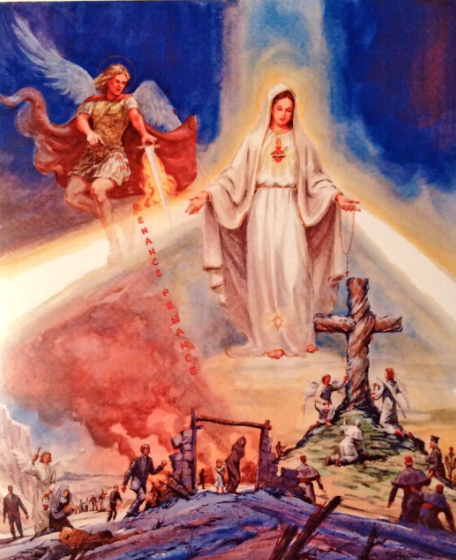Sister Lúcia chose not to reveal the third secret in her August 1941 memoir. She became seriously ill with influenza and pleurisy in 1943. When Bishop Silva paid her a visit on September 15, 1943, he suggested she write down the third secret so that it would be recorded in the event of her death. However, Lcia was hesitant to do so because she had heard Mary say not to reveal the secret after receiving it. Because Carmelite obedience requires superiors’ orders to be regarded as coming directly from God, she was at a loss as to which orders took precedence.
Finally, Bishop Silva sent her a letter in mid-October with a direct order to record the secret. Even after this direct order, Lúcia continued to struggle. She overcame it, according to Lcia, after the Virgin Mary appeared to her in early January 1944 and said, “Write that which they command you, but not that which is given to you to understand of its meaning.”
The third part of the secret was written down “by order of His Excellency the Bishop of Leiria and the Most Holy Mother” on January 3, 1944. The sealed envelope containing the third secret was delivered to Silva in June 1944, where it remained until 1957. When the bishop refused to open the sealed envelope, Lúcia “made him promise that it would definitely be opened and released to the world at her death, or in 1960, whichever came first,” according to Canon Galamba, an advisor to the Bishop of Leiria.
Cardinal Angelo Sodano announced on 13 May 2000, 83 years after the first apparition of the Lady to the children in the Cova da Iria and 19 years after Pope John Paul II’s assassination attempt, that the third secret would finally be revealed. Cardinal Sodano hinted in his announcement that the secret was about the twentieth-century persecution of Christians, culminating in the failed assassination attempt on Pope John Paul II on May 13, 1981, the 64th anniversary of the first apparition of the Lady of Fátima.
The idea of an already fulfilled secret is contested by many Catholics and Christians.

